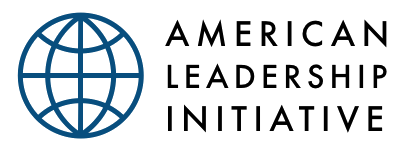ALI Webinar: Discussion with Congressman Rick Larsen (D-WA): U.S.-China Relations in a Post-Covid-19 World
/ALI and WITA co-hosted a webinar with Congressman Rick Larsen (D-WA), founder and co-chair of the Congressional U.S.-China Working group, and a key thought leader on the U.S.-China relationship. The conversation focused on the importance of redefining the U.S.-China relationship to insure American economic competitiveness and national security in the 21st century. Congressman Larsen shared the following perspectives:
Congressional attitudes: The center of gravity towards China in Congress has changed, and has resulted in a hardening of attitudes. The national security hawks, economic hawks and human rights hawks are now flying together. There are punishers, who seek to punish China, the decouplers who want to sever the trade relationship, and the salvagers who recognize the areas of concern but also realize that there need to be areas of cooperation. I consider myself a salvager. There are a a number of members who understand that our relationship with China is not a zero-sum game as the current administration believes. There areas like reducing carbon emissions, which we can only accomplish with China’s partnership. We have a range of relationships with China in different areas and we need to be more nuanced in how we address them.
Trade: Average U.S. tariffs on products from China are now 20%, six times the level before the trade war, and imports are down 16%, due to the tariffs, but also due to increased restrictions on medical products, technology trade, and firms with ties to human rights violations. The premise of the tariff war was to achieve structural changes in China. This approach is clearly not working, so the Administration is moving the goalposts. The Administration also hoped that the tariffs would encourage reshoring of manufacturing, instead manufacturing has left China and moved to Vietnam and elsewhere, not come back to the U.S. The U.S. should focus on creating new jobs, rather than relying on bring back jobs from overseas. The next administration needs to reset our approach. There is still room to work with our allies based on a set of common principles to try and shift the Chinese government’s attitude.
WTO: Many in Congress have been frustrated that the WTO has not been able to control China’s practices such as forced tech transfer and industrial subsidies, leading some to question its usefulness. The WTO needs to be reformed and if the U.S. doesn’t try to lead that effort, there is 0% chance that the WTO will be able to adapt. If the US does try to lead a reform effort, there is somewhere between a 0% and 100% chance of success. As frustrating as the WTO is, it is still a global institution. The US can still lead but must do it from within the WTO.
Technology: A critical concern in Congress and elsewhere is how to manage our relationship with Chinese technology companies to protect American technology and national security. China is also very aggressive in selling its technology in the developing world, and with it, selling its standards of censorship, monitoring of citizens and cybersecurity. In addition to the restrictions that have been placed on Huawei, ZTE and other Chinese companies regarding selling into the U.S. market and doing business with U.S. companies, the U.S. needs to go on the offensive and participate more in global standard setting bodies. Otherwise, we are ceding the standard setting ground to China and others. There is a provision to this effect in the recent House Armed Services Committee markup. Another obstacle facing U.S. technology companies competing with Chinese companies in the developing world, is the extremely generous financing offered by the Chinese government. We need to try and level the playing field, including exploring the Digital Marshall Plan that ALI has advocated. We also need to acknowledge that we cannot compete dollar for dollar with what China is doing, and that U.S. companies have other advantages which they can bring to the table.
Human Rights: We have seen a serious escalation in Chinese human rights violations against the Uyghurs in in Xinjiang, and against democracy in Hong Kong. Congress passed a sanctions bill a couple of weeks ago, but sanctions work best when done in concert with our allies and partners. We should be having discussions with our allies regarding a coordinated approach to address these atrocities.
Biden: If I was advising Vice President Biden, my advice would not differ greatly from the article he published in Foreign Affairs magazine a few months ago. I would advise the campaign that there is a desire by many countries for US leadership and engagement. I would encourage the new Administration to work with our allies to buttress international institutions. I would advise them to invest domestically in training and infrastructure to ensure that U.S. companies can compete abroad. It is critical for the U.S. to aggressively address the digital divide, invest in next generation skills training and address social injustices in the United States,
Q: The US-China relationship has more than just bilateral implications, how are we supposed to lead moving forward?
A: We should be doing this with as many friends and partners as possible. This is not a zero-sum game as the current administration believes. The US gains from possible cooperation in certain areas with China, things that cannot be done alone. We do not have one relationship with China, we have many and we need to be more nuanced and particular on China.
Click here to watch the full video



